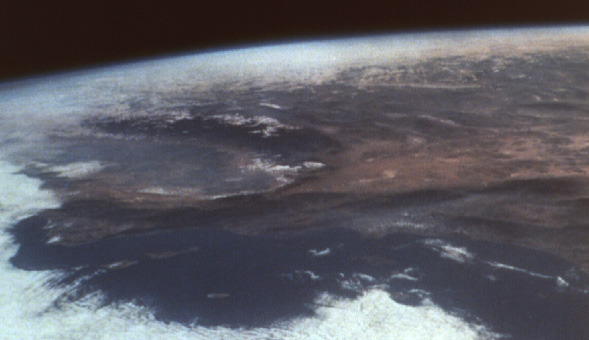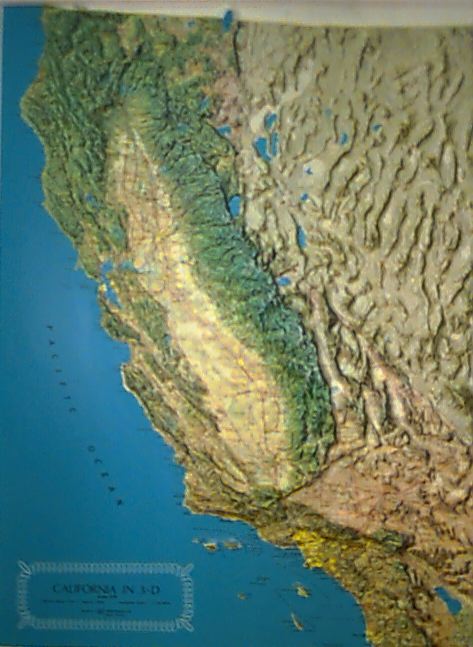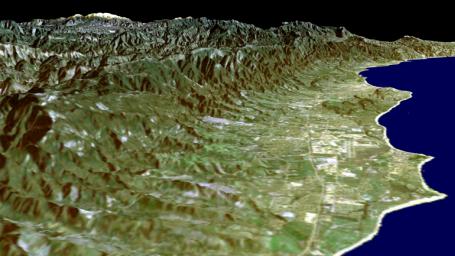A Novel
"...and have dominion over the fish of the sea, and over the fowl of the air, and over every living thing that moveth upon the earth."
Genesis 1:28.
|
When the Killing's Done, by T. C. Boyle |
 |
The Galapagos of North America, It's a tired phrase....that these island, our islands, are equally unique. And equally worthy of preservation. And not simply preservation, but restoration."
p. 57. |
 |
Table of Contents |
|
| Anacapa |
Part I |
|
| |
The Wreck of the Beverly B |
3 |
| |
Rattus Rattus |
20 |
| |
The Wreck of the Winfield Scott |
38 |
| |
The Paladin |
66 |
| |
Boiga Irregularis |
90 |
| |
Coches Prietos |
116 |
| Santa Cruz |
Part II |
|
| |
Scorpion Ranch |
139 |
| |
Ovis Aries |
166 |
| |
Sus Scrofa |
189 |
| |
Prisoner's Harbor |
210 |
| |
The Black Gold |
233 |
| |
Willow's Canyon |
260 |
| |
El Tigre |
281 |
| |
Crotalus Viridis |
310 |
| |
The Wreck of the Anubis |
326 |
| |
The Separation Zone |
344 |
| |
Scorpion Ranch |
359 |
| |
concluding remarks
|
|
A set of stories about science, survival, sensibilities, and sensitivity where ecology is as much a character as Alma's and Anice's families.
"And then on the first day of what would have been the third week of her imprisonment in a place she had come to loathe in its changeless, ceaseless, ongoing and never ending placidity and indifference and sheer brainless endurance, a Coast guard cutter… rounded the point and motored into the cove."
Beverly Boyd's rescue,
pp. 36-37.
Cast of characters:
- Alma Boyd Takesue, a doctor of philosophy in biology from UC Berkeley, protagonist.
- Tim Sickafoos, consulting ornithologist–discovered Cassin's auklets nesting on Anacapa, Santa Cruz island murrelet census taker.
- Alicia Penner, part-time NPS employee and friend of animals (a mole)
- Kat Takesue, Alma's widowed (August 3, 1984) mother & remarried school-teacher.
- Wilson Gutierrez, carpenter and boat's captain of Danish, Mexican heritage.
- Rita Reed, Anise's mother worked for Baxter (Bax) Russel at Scorpion Ranch (1979).
- Anise Reed, animal rights activist & singer: "and meat is murder....Well it is." (p. 221)
- Dave LaJoy, "rat lover" to the press, Alma's nemesis, the novel's green lawn antagonist.
- Annabelle Yuell, Nature Conservancy
"He throws it right back at her. 'How can you talk about being civil when innocent animals are being tortured to death? Civil? I'll be civil when the killings done, and not a minute before. Those rats–"
"Those rats have been there for one hundred and fifty years!"
p. 63.

"That error, whether it was the result of hubris, over zealousness or a simple mistake of long division, doomed her, and as the years spun out, doomed generations of seabirds too."
p. 43.
indigenous birds of Guam, lost DDT, or the brown tree snake?
pp. 90-94.
Animal Rights
"The assumption that animals are without rights and the illusion that our treatment of them has no moral significance is a positively outrageous example of Western crudity and barbarity. Universal compassion is the only guarantee of morality."
Arthur Schopenauer
pp. 129-130.
"–but eggs are his one concession to the system, to cruelty. He means to change."
p. 131.
"This is her island after all."
"Coches is slang for pigs, get it? Dark pigs canyon, La Cañada de los Coches Prietos. The dark ones, those are the ones that went feral back in the eighteen hundreds. They get big and mean and they are fast. The boars anyway."
"And if these people think they're going to get away with slaughtering some five thousand native pigs on Santa Cruz Island, well they've got another think coming."
LaJoy, press conference after his acquittal at the trespassing trial
p. 136.
the ravens descending voraciously on the ewes
"Her daughter's face was blanched and small, as distant as if she were all the way across the field still. She was fifteen years old. She loved animals, loved her dog, loved the lambs, but this had nothing to do with love.
'Wake up!' she shouted, spitting the words at her over the rocketing surge of her blood, already turning away to scan the meadow for the lambs that had been spared, for the spindly inadequate legs and the rain-wet. blood-wet fluff of their coats, but all she could see was the ravens. dozens of them, piled up on he corpses like black blankets flapping."
pp. 162-163.
"If rats are the single most devastating invasive species when introduced to a closed ecosystem, then goats and sheep, with their ability to seek out even the most inaccessible niches and their capacity to consume and digest practically anything short of the dirt itself, are a close second."
Twenty-four thousand sheep, give or take a few, were eliminated. And still the coreopsis and live-forever, the silver mallow, the gooseberry, manzanita and monkey flower, the toyon and the mountain mahogany and deerweed were grazed to the nub before they could bloom and set seed. And still the woodland skipper and the cranefly and the katydid and the slender salamander declined and declined again."
p. 167.
The solution to the problem of overgrazing…was to diversify."
pp. 167-168.
"Still for all the fragility of the ecosystem, the Santa Cruz Island Company made a go of it, shipping lamb and beef, wool, hides, tallow and wine back to the coast, but its was the wine, especially that made the coffers ring."
p. 168.
The wild boars
"Of birds, ecology, the ruination of the islands, the islands themselves, he knew next to nothing and what he knew was as vague as and untroubling to him as what was going on in the former Yugoslavia or among the Dayaks in Borneo. She didn't blame him. He was like anybody else, living in the world of society, commerce, TV, oblivion."
Takesue about, her step father, Ed's distancing himself from any knowledge of her work.
p. 193.
"Hard work chasing pigs up and down those canyons...' he says."
p. 199.
Frazier Carter (New Zealand hunter):
" ' You see'–
'we use their own sex drive against them, and if that seems unfair, well dearie, I guess it is. But this isn't a game. This is war. All-out war. And wave goodbye to the little piggies."
pig sex. 'And believe me,' he says, 'nobody gets out alive.' "
pp. 206-207.
" ...the air clear and sharp–he can see all the way out to Santa Cruz."
p. 210.
"But just the though of it is enough to set him off. Down goes the spoon, the bowl, the newspaper, milk sloshing, the wicker table trembling under the violence of it, and he's on his feet and across the saltillo floor, pacing now because he just can't sit, can't eat, can't read….Its as if deep inside him a hammer has dropped, the rush of hate and rage and frustration shooting from his gut right on up to the top of his head to inflame the roots of his hair till they ache, actually ache...and now they're closing the island in their typical imperious way, no matter what the wilt of the people says,...because they are confident no one is going to cross the channel when the water gets rough."
p. 211.
"Prisoner's Harbor, the main point of entry on Santa Cruz, lies on the north shore, just past the narrow eastern neck..."
p. 220.
Outside the Lobrero Theatre
"a killer in the service of something higher, of restoration, of redemption, salvation, but a killer all the same.
"...when the world was a bigger place with fewer people in it. Standing there with her mother on the Spanish tiles outside the tall wooden doors, Alma can't help thinking about that, about a world in which the population was less than a third of what it is now, all these surplus people absent, blown away like pollen to the far ends of the earth to let the rivers recover, the forests, the animals."
"1924"
"She tries to picture it."
p. 236.
"Populations confined by geography and the limits of food production, jungles standing tall, mountaintops unconquered, the sea swarming with fish, mammals and invertebrates–that was the way it was when this theater was erected on the site of the old one. which dated back to 1873, when the world was bigger yet."
pp. 236-37.
"The Black Gold was a working boat, a converted thirty-two foot cabin cruiser with an open deck and a compartment for the catch below."
Kat & Greg's boat "Uni–sea urchin–was what Greg and Mickey were after, what they were exclusively after, because the abalone fishery was taking a nose-dive from over-harvesting, groundfish numbers were down and lobsters seasonal....Greg's father had found a niche market for the urchins, which he was selling to a distributor in L. A. for transshipment to Japan."
pp. 249-50.
Kat
"She'd never been happier."
p. 252.
El Tigre ridge lies approximately three miles south of the field station, rising in elevation to 1,484 feet above sea level amidst a tapering wall of eroded peaks that falls away precipitously into the cleft of Willows Canyon to the west."
p. 299.
"They're both committed environmentalists. Dedicated to saving the ecosystem, preserving what's left. restoring it. To bring a child into an overpopulated world is irresponsible, wrong, nothing less than sabotage . . . "
p. 283
"The only discernible purpose of life is to create life–any biologist knows that. She is thirty-seven."
p. 284
"He could wither away and die for all she cared. She went about her business as if he didn't exist, cool with Alicia, indifferent to the protestors, driving to work and back in a trance, cooking for one and losing herself...."
"…on the third day there were signs that he'd been there–"
p. 294.

Computer imagery of the continental edge of the Santa Barbara Channel, looking west to east.
A dead body, shivering animal rights activists and a woman who is a journalist at the shoreline stranded and waiting in the frigid water and falling cold rain. . . but,
"there is no boat."
The rescue that is not there--
p. 310.
"Crotalus Viridis" the western rattle snake "thirty apiece?"
p. 324-325.
The fox and the racoon?
"He's a survivor, a fighter,....Night on Santa Cruz Island, night immemorial."
p. 369.
People in nature
The essential value of this book comes down to the elemental power of the world to test, torment, try and even turnover the immediate intentions in favor of unforeseen --indeed unforeseeable outcomes.
In the novel readers move inexorably from the ironic to the elusive qualities of human existence. We witness in twists among dialogues, monologues and flashback's entertaining and fearsome encounters among the characters. The techniques reinforce how entwined lives of people: the survivors and the dominant characters, the double agents and the zealots who in their relentless need to know stumble and often miss the clues that control the world of animals where ecology and human destiny entwine in some very unpredictable ways. The foreshadowing of conflicts among the characters is set amidst a conflict between people and the natural world of California's "Galapagos islands" that have stood in the very path of the regions more glamorous history and harbor remnants of nearly every mistake civilization has made in the "destruction" of California's native wealth and manufactured surplus.
The idea of balance is brought up in obvious, repetitive, and subtle ways only to be challenged by the more profound contrast with fortune and pointless death on the terminal path to the chilling spots where the killing's done.
J.V.S, 2011.
Vocabulary




